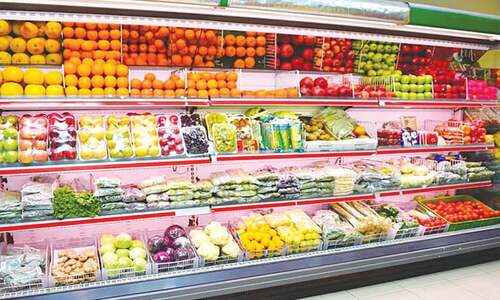ISLAMABAD: Pakistan’s oil and eatable import bill surged by 64 per cent to $32.32bn in the FY22 compared to $19.69bn in the preceding fiscal year owing to higher international prices and massive depreciation of the rupee.
While the textile and clothing exports also grew 25.53pc year-on-year to $19.32bn on the back of a steady rise in global demand.
Data released by the Pakistan Bureau of Statistics on Tuesday showed the import of medicinal products went up 192.29pc to $4.06bn in the FY22 against $1.39bn. This is one of the major increases in imports of one sector mainly due to an increase in import of Covid-19 vaccines.
The import bill of oil increased by over 105.31pc to $23.31bn in FY22 from $11.35bn over the corresponding months of last year.
Textile exports rise 26pc to $19.3bn during previous fiscal year
Further breakup showed that the import of petroleum products went up by 133.90pc in value and 28.28pc in quantity. Crude oil imports rose by 80.18pc in value and a 5.26pc in quantity during the period under review while those of liquefied natural gas increased by 90.65pc in value. Liquefied petroleum gas imports jumped by 39.70pc in value in FY22.
The food import bill rose by over 8pc to $9.01bn in FY22 from $8.34bn in FY21 to bridge the local production gap. Within the food group, the major contribution came from wheat, sugar, edible oil, spices, tea and pulses.
The machinery import bill increased by 7.63pc to $10.92bn in FY22 against $10.14bn in the same period last year. The major contribution came from the import of electrical machinery and mobile phones.
The mobile phone imports were slightly down by 4.19pc YoY to $1.97bn in FY22. The arrival of apparatus of mobile phones posted YoY growth of 33.65pc to $705.94m.
Textile exports
The PBS data showed that the textile and clothing exports grew just by 2.86pc year-on-year in June. High energy cost was one of the reasons for the slowdown in textile exports in the last month of FY22.
The government has recently announced the much-awaited textile and apparel policy pending for the last few years.
In the budget 2021-22, the government drastically reduced duties and taxes on the imports of several hundred raw materials to bring down the input cost of exportable products. Liquidity issues were also resolved to a considerable extent by a timely release of refunds and the payment of cash subsidies.
Data showed that ready-made garments exports jumped 28.75pc in value and 49.43pc in quantity for FY22, while the exports of knitwear edged up 34.23pc in value and a decline of 5.45pc in quantity.
Bedwear exports grew by 18.80pc in value and 11pc in quantity. Towel exports were up by 18.54pc in value and 3.91pc in quantity, whereas those of cotton cloth rose by 26.91pc in value and 3.81pc in quantity.
Among primary commodities, cotton yarn exports surged by 18.67pc and those of yarn made from materials other than cotton by 98.35pc. The exports of made-up articles — excluding towels — rose by 12.25pc, while those of tents, canvas and tarpaulin by 0.02pc during the period under review.
The import of textile machinery jumped 29.13pc in FY22, reflecting expansion or modernisation in the textile industry.
Published in Dawn, July 20th, 2022













































